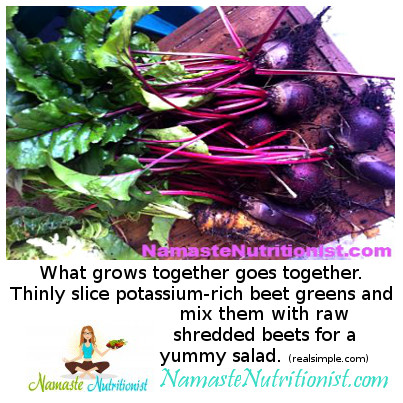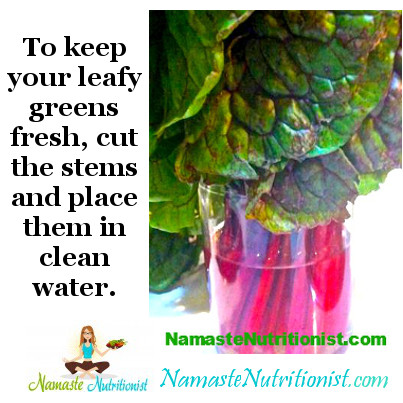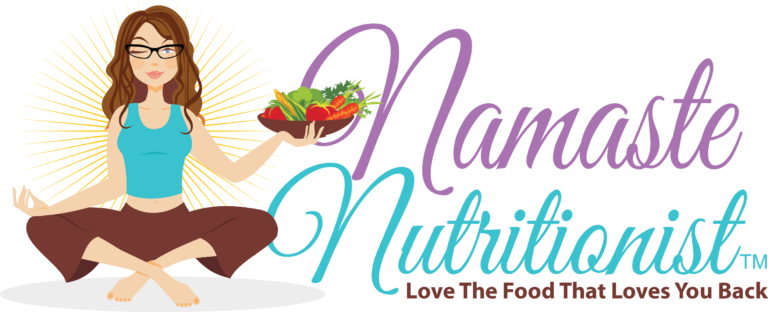Beets have been a treasured vegetable throughout history. In Roman times, beet greens were widely enjoyed, and the beetroot itself was reserved for medicinal purposes only. Fast forward to modern times.
Beet greens are typically thrown away by consumers who are unaware of their rich nutritional values. Beet root is enjoyed most frequently in the form of sugar beet, which provides sugar to numerous processed foods. Unfortunately, sugar beet is nowhere close to medicinal when it’s consumed in sugary processed foods. Plus, sugar beets are one of the most commonly genetically engineered foods in the US today.
But back to whole beets. Whole beets are incredibly nourishing, and are also very sweet root vegetables. They are higher in carbohydrates than most vegetables. This means that if you’re having a sugar craving, or need a little extra energy to get through your workout, beets are a beautiful resource.
Check out these nine glorious reasons why beets deserve a regular place at your family’s table.
1. They boost your endurance
Consuming nitrate-rich, whole beetroot improves running performance in healthy adults. One study states that “it would be prudent for individuals seeking performance benefits to obtain nitrates from whole vegetables, such as beetroot.” (1) Dr. Mercola states that “Those who drank beet juice prior to exercise were able to exercise for up to 16 percent longer.
The benefit is thought to also be related to nitrates turning into nitric oxide, which may reduce the oxygen cost of low-intensity exercise as well as enhance tolerance to high-intensity exercise (10).”
2. Beets lower your blood pressure.
Beets are naturally high in nitrates, which converts to nitric oxide (NO) in your body. NO assists in relaxing and dilating your blood vessels, which reduces blood pressure and allows for better blood flow. One study discovered that a glass of beet juice lowered blood pressure by 4-5 points on average, and within 6 hours. (2, 3, 4)
3. They protect your heart
Betaine (responsible for beet’s red hue) lowers homocysteine levels within the blood. High levels of homocysteine in the blood result in the development of coronary heart disease (CHD), stroke and peripheral vascular diseases. World Healthiest Foods reports that“[Betaine’s]… presence in our diet has been associated with lower levels of several inflammatory markers, including C reactive protein, interleukin-6, and tumor necrosis factor alpha. As a group, the anti-inflammatory molecules found in beets may eventually be shown to provide cardiovascular benefits in large-scale human studies, as well as anti-inflammatory benefits for other body systems.”
4. Protect yourself with beet’s cancer-fighting properties
Beets are being investigated for their anti-cancer powers in pancreatic, prostate and breast cancers. (4) Lab studies are encouraging researchers to investigate betanins and betalains (compounds found in beets) for potential tumor therapy in colon, stomach, nerve, lung, breast, prostate and testicular tissue. (5)
5. They protect your liver
Table beets contain important bioactive agents (betaine and polyphenols), which have a wide range of beneficial physiologic effects. Betaine may protect against liver disease, especially against liver fat deposits (often seen in alcohol abuse and diabetes). One study found that rats with liver damage from oxidative stress were aided by beet consumption. After consuming beets, the rats were protected from oxidative stress developed from liver injury. Beets greatly supported anti-oxidant activity and increased zinc and copper protection in liver cells. (7)

6. Beets offer world-class antioxidant support
They have the highest cellular antioxidant activity of vegetables tested (8). They contain numerous polyphenols, and current evidence strongly supports that polyphenols aid in preventing cardiovascular diseases, cancers, osteoporosis, and possibly neurodegenerative diseases and diabetes. (6) Consuming red beets regularly may provide protection against certain oxidative stress-related disorders in humans (9).
7. Beets boost your eyes
Carotenoids, especially lutein and zeaxanthin, are well-known phytonutrients that play an important role in health, and especially eye health.
Beet greens are a valuable source of lutein/zeaxanthin. One cup of these raw greens may as much as 275 micrograms of lutein! Yellow and orange beet roots are may be valuable sources of this carotenoid. Lutein can often be found in yellow and orange vegetables.
8. Beet your constipation
Beets are full of soluble and insoluble fibers. They help with keeping your bowels functioning regularly (another function of detoxification). Just don’t *beet* surprised when you discover that your stool is redder than usual after eating red beets! Most likely, it’s not a GI bleed. It’s just those beautiful beets. However, if you suspect that you do have a bleed, or if the redness lasts for more than a day or two, definitely get your buns in to see your doctor right away!
9. Wash away toxins
Beets support your liver’s Phase 2 detoxification process, which allows your body to excrete toxins from your body that are already broken down. Throughout recorded history, beets have been a remedy for blood and liver conditions.
Avoid over-cooking beets
According to World’s Healthiest Foods, beets are better for you with minimal cooking.
Unlike some other food pigments, [beet’s] betalains undergo very steady loss from food as the length of cooking time is increased. For example, one recent study has shown the red betalain pigments in beets to be far less heat stable than red anthocyanin pigments in red cabbage. The difference between 15 minutes of steaming versus 25 minutes of steaming, or 60 minutes of roasting versus 90 minutes of roasting can be significant in terms of betalain damage. For these reasons, we recommend that you keep beet steaming times to 15 minutes or less, and roasting times under an hour.
Eat Your Beet GREENS
It’s such a shame to see people rip off their beet greens and throw them away. These ruffly greens are at least as healthy as the beets themselves, if not more healthy!

Beet greens are like a living, easily absorbed multivitamin:
They are full of vitamins and minerals (like calcium, iron, phosphorus, zinc, folate, magnesium, manganese, potassium, copper). They contain a large amount of antioxidants, including vitamins A and C.
Eat the greens the same way that you would kale, chard or spinach.
I immediately chop beet greens off of my beets and store them in a pitcher of water. They stay good for a few days. Add them to a smoothie, or lightly sautee them with garlic. (I find my VitaMix does the job nicely!)
Read this article by Dr. Mercola: “What Are Beet Greens Good For?” to discover how beet greens can help you strengthen your immune system, improve your bone strength, and improve your brain health.
In the comments below, share with me how you enjoy your beets or your beet greens.
Citations:
(2) Effect of beetroot juice on lowering blood pressure in free-living, disease-free adults: a randomized, placebo-controlled trial. Source: Nutrition Journal.
(3) “Blood pressure-lowering effects of beetroot juice and novel beetroot-enriched bread products in normotensive male subjects.” Source: PubMed
(5) World’s Healthiest Foods
(6) “Polyphenols: antioxidants and beyond,” Source: The American Journal of Clinical Nutrition.
(7) “Liver-protecting effects of table beet (Beta vulgaris var. rubra) during ischemia-reperfusion,” Source: PubMed
(8) “Cellular antioxidant activity of common vegetables”. Source: J Agric Food Chem.
(9) “Betalains- a new class of dietary cationized antioxidants,” Source: The Journal of Agricultural and Food Chemistry
(10) “Benefits of Beets” Source: www.Mercola.com
(11) Nutrition to reduce cancer risk. Source: www.Stanford.edu
(12) Beet nutrition facts. Source: www.Nutritionandyou.com




19 responses to “9 Reasons Your Body Wants Beets”
This is interesting as only recently beets have found their way back on to my table. I didn’t know how good they are for me nor how amazing the greens are! I’ll be keeping them out of the compost now. I was very interesting in how the heat affects them during cooking. I am curious how the nutrients might change (or not) from pickling?
I learn something new everyday! Eating the greens, first time hearing that?
Lorraine, so many people don’t realize just how great the greens are for you. Enjoy! =-)
Apparently, lots of people don’t realize just how incredibly nourishing the beet greens are for you. In fact, you can harvest the greens while the beets are growing. Beets take a long time to grow in the Pacific Northwest. So, I sometimes harvest the greens and leave the beets because I think they’ll never mature.
I love beets! I am really looking forward to some recipes. I have not mastered roasting them yet, so I’d love some tips. I also want to start incorporating them into juices or smoothies. Can’t wait to read more!
I love beets! They are super beneficial for health and I look forward to them each summer.
Being that you’re an acupuncturist, I’ll bet you have some tips on how Chinese medicine views beets. =-)
This is interesting! I happen to love beets and beet greens, so this is encouraging information.
I know Kate, I was really amazed at just how healthy beets are for us. This is good news for me too! =-)
I’m not really familiar with beets so this is really new information to me. Although I’ve heard it from my friends I never really paid much attention to it, probably because when they discovered something new they would talk about it like they’ve being doing it for a long time and be appalled if I tell them I’m not aware of it. Anyway, I’m glad that I found this post because now I get to really pay attention to it and understand its health benefits. I’m open to the idea of including beets to my diet, I think my local grocery store is selling them. I just hope beets also taste good. Thank you for sharing this.
Regards,
Olivia
Cool, so glad it helped you, Olivia. Personally, I’m in love with how beets taste. They are sweet and versatile. Best wishes with your new beet adventure, dear!
I crave beets too many times . I just had to look up info.. how what and where . Thanx this advice is much appreciated.
I just wanted some beets then I seen pickled beets and tried them just out of the blue I was craving it just wanted beets and didn’t no why I’ve read up on it and now I No, Glad I decided to read up on it and now i no.
I’ve been eating pickled beets probably once a week for over 50years either w a burger or a tuna salad plate. Craving some now!
That sounds like a delicious combination! I’ll have to try that sometime. Thanks for the idea!
Love beets. first my neck was fracture in an accident by someone on their cell. I was paralyzed after a few hours and needs surgery asap. a few years later I was hit again,and knocked my out of my nursing career. then,after much therapy, I was able to drive,another careless driver and my car went flying off a mtn. So I am disabled with a horrible bone density. I got sick last summer and lost over 50 pounds quickly. I noticed a craving for beets,so my son brought fresh beets home. they were in a pkg without the greens. I sliced them and steamed themed them. So satisfying. I have always loved beeted beets. It kills me to see people put them in a pot of water and boil away.I was curious why I am craving beets.so I found this site. I am already on a calcium supplement. 1800mg a day. I may need more. I now realize the beets i love are better for me than i realized. thanks for more info than I expected. A great site. I will spread the word to others.
Glad to hear it’s helped you, Carol. Blessings for your healing; it sounds like you’ve been through a lot! Be sure to never take calcium without adequate magnesium, vitamin D, and vitamin K. =)
Glad to hear it’s helped you, Carol. Blessings for your healing; it sounds like you’ve been through a lot! Be sure to never take calcium without adequate magnesium, vitamin D, and vitamin K.
My husband has terminal cancer.He woke this morning craving beets.He is not a big veggie eater so I was surprised.I know he is anemic.